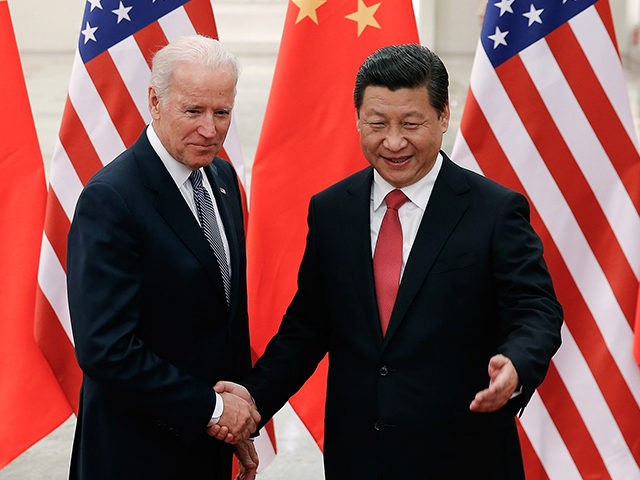U.S. officials have approved licenses for China’s Huawei to purchase hundred of millions of dollars of chips for its auto component business, a report from Reuters said Wednesday.
The report cites two unnamed sources.
From Reuters:
Huawei, the world’s largest telecommunications equipment maker, has been hobbled by trade restrictions imposed by the Trump administration on the sale of chips and other components used in its network gear and smartphones businesses. The Biden administration has been reinforcing the hard line on exports to Huawei, denying licenses to sell chips to Huawei for use in or with 5g devices.
But in recent weeks and months, people familiar with the application process told Reuters the U.S. has granted licenses authorizing suppliers to sell chips to Huawei for such vehicle components as video screens and sensors. The approvals come as Huawei pivots its business toward items that are less susceptible to U.S. trade bans.
Not everyone is a fan. Republican Senator Tom Cotton, who has been deeply critical of Huawei in the past, said in a statement, “It’s unacceptable for the Biden administration to ease the pressure campaign against Chinese spy companies like Huawei.”
Critics of the Biden administration’s kowtow to China on the Huawei chips say it will weaken efforts to get allies across the globe to ban Huawei products from critical information infrastructure.
Just over a year ago, the U.S. government announced new sanctions against Huawei that sought to block its supply of semiconductors.
Breitbart News’ John Hayward reported:
The new sanctions essentially finish the job of cutting Huawei off from its supply of Kirin chips, a custom-designed advanced processing chip supplied until now by the Taiwan Semiconductor Manufacturing Company. Huawei began seeking alternative suppliers after restrictions imposed by the U.S. in May, but Monday’s order from the Commerce Department comprehensively blocked all Huawei entities from purchasing the chips from any other viable sources.
“Huawei and its foreign affiliates have extended their efforts to obtain advanced semiconductors developed or produced from U.S. software and technology in order to fulfill the policy objectives of the Chinese Communist Party. As we have restricted its access to U.S. technology, Huawei and its affiliates have worked through third parties to harness U.S. technology in a manner that undermines U.S. national security and foreign policy interests. This multi-pronged action demonstrates our continuing commitment to impede Huawei’s ability to do so,” explained Commerce Secretary Wilbur Ross.
Huawei is the top mobile phone maker in China. Beijing considers it a “national champion” and it is central to the country’s “Made in China 2025” scheme to dominate high-tech manufacturing. As one of China’s few truly global brands, it has become something of a symbol for the nation around the world. The company is also the central actor in China’s bid to dominate next-generation 5G telecommunications technology.
Ren Zhengfei, the founder and CEO of Huawei, was a high-ranking intelligence officer with the People’s Liberation Army, according to U.S. officials. Two years ago, a federal grand jury indicted Ren’s daughter—who was also Huawei’s chief financial officer—Meng Wanzhou, charging her with fraud and violations of Iran sanctions. She was arrested in Vancouver, Canada, and remains there under house arrest while fighting her extradition to New York for trial.

COMMENTS
Please let us know if you're having issues with commenting.